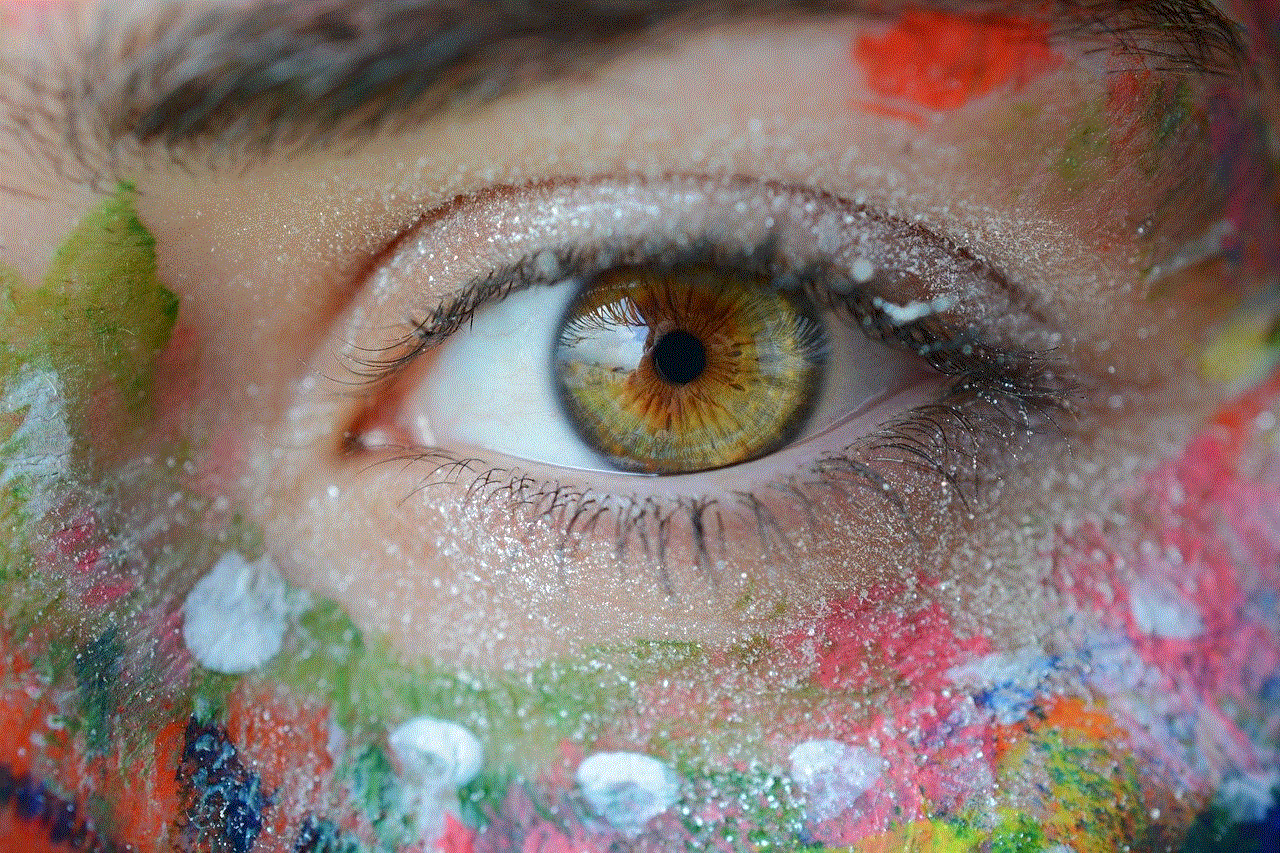i hate youtube celebrities
Title: The Love-Hate Relationship with YouTube Celebrities: Examining the Impact and Controversies
Introduction: A Growing Phenomenon
YouTube celebrities, also known as YouTubers, have become a prominent and influential force in the digital landscape. With their charismatic personalities, unique content, and massive followings, they have amassed millions of subscribers and transformed the way we consume media. However, with their rise to fame and fortune, a significant portion of the population has developed mixed feelings towards these online sensations. In this article, we will delve into the reasons behind the hate towards YouTube celebrities, exploring the impact they have had on society, and examining the controversies surrounding their rise to fame.
1. The Perception of Inauthenticity
One of the primary reasons behind the disdain towards YouTube celebrities is the perception of inauthenticity. Many critics argue that these personalities create an artificially polished image, carefully curating their content to appeal to a wider audience. This curated content can give the impression that they lack genuine connection or relatability, leading to accusations of being “fake” or “manufactured.”
2. The Illusion of Fame and Fortune
Another aspect that fuels the hate towards YouTube celebrities is the illusion of overnight success and wealth. While it is true that some YouTubers have managed to turn their channels into lucrative careers, the vast majority face immense challenges and countless hours of hard work before reaching that level. The perception that these internet stars effortlessly achieve fame and fortune can breed jealousy and resentment among those who fail to acknowledge the dedication and effort behind their success.
3. The Oversaturation of Content
With millions of YouTube channels covering various topics and interests, some individuals perceive the platform as oversaturated. This oversaturation can lead to a sense of fatigue and disillusionment, causing people to develop negative feelings towards YouTube celebrities as they struggle to stand out among the crowd. This oversaturation also creates a perception that the content lacks depth, substance, and originality.
4. The Disconnect from Traditional Media
The rise of YouTube celebrities has disrupted the traditional media landscape, causing a sense of unease among established figures in the entertainment industry. Some critics argue that these online sensations lack the experience and formal training that traditional celebrities possess, leading to a perception of subpar quality content. This disconnect can fuel animosity and contribute to the hate towards YouTube celebrities.
5. Controversies and Scandals
Like any public figure, YouTube celebrities are not immune to controversies and scandals. From inappropriate behavior to offensive comments, these individuals have faced backlash for their actions. The viral nature of these controversies amplifies the hate towards YouTube celebrities, as their actions are scrutinized and criticized by the public.
6. The Age Factor
A significant portion of YouTube’s audience consists of younger viewers, which has led to concerns regarding the influence and impact these celebrities have on impressionable minds. Critics argue that some YouTube celebrities promote materialistic values, unhealthy lifestyles, or inappropriate behavior, potentially leading younger viewers astray. This concern for the younger generation’s well-being can contribute to the dislike towards YouTube celebrities.
7. The Perceived Lack of Talent
Another criticism directed towards YouTube celebrities is the perception that they lack talent compared to traditional celebrities. Critics argue that many YouTubers have gained fame by creating content that requires little skill or effort, such as vlogs or DIY videos. This perceived lack of talent can lead to judgments of YouTube celebrities as undeserving of their fame and success.
8. The Commercialization of YouTube
As YouTube has evolved into a lucrative platform, some viewers have expressed concern about the increasing commercialization of content. Critics argue that YouTube celebrities prioritize sponsorships and monetization, which can compromise the authenticity and originality of their content. This commercialization can lead to a perception that YouTube celebrities are more interested in profit than creating meaningful or valuable content.
9. The Echo Chamber Effect
YouTube’s recommendation algorithm has been criticized for creating an echo chamber effect, where viewers are continuously exposed to content that aligns with their existing beliefs and preferences. This echo chamber can limit the diversity of perspectives and ideas, leading to an increased dislike towards YouTube celebrities who perpetuate these existing biases.
10. The Impact on Mental Health
Lastly, the hate towards YouTube celebrities can also stem from concerns about the impact of their fame and online presence on their mental health. Some critics argue that the constant pressure to create content, maintain a high subscriber count, and meet viewer expectations can take a toll on these individuals’ well-being. This concern for their mental health can lead to empathy but also contribute to the dislike towards YouTube celebrities.
Conclusion: A Complex Relationship
YouTube celebrities have undeniably shaped the digital landscape, captivating millions of viewers worldwide. However, their rise to fame and fortune has also generated a significant amount of hate and criticism. From the perception of inauthenticity to concerns about the impact on younger viewers and mental health, the reasons behind the hate towards YouTube celebrities are multifaceted and subjective. While it is crucial to acknowledge the valid concerns and controversies surrounding these online sensations, it is equally important to recognize that there are also positive aspects to their influence. Ultimately, the love-hate relationship with YouTube celebrities reflects the complex nature of fame and the evolving media landscape.
app is blocking access to google play
Title: The App Blocking Access to Google Play: Causes, Impacts, and Solutions
Introduction:
In today’s digital world, smartphones have become an integral part of our lives, offering a world of possibilities through various applications. However, encountering an app that blocks access to Google Play can be frustrating and confusing for users. This article aims to explore the causes behind this issue, its impacts on users and developers, and potential solutions to overcome it. By delving deeper into this problem, we can gain a better understanding of how to navigate such situations and ensure a seamless user experience.
Paragraph 1: Understanding the App Blocking Issue
When an app blocks access to Google Play, it means that users are unable to access or download applications from the official Google Play Store. This problem can arise due to various reasons, such as outdated software, incompatible devices, or even intentional restrictions imposed by app developers.
Paragraph 2: Outdated Software as a Cause
One of the common causes of app blocking is outdated software. Android devices require regular updates to ensure compatibility with the latest versions of Google Play. Failure to update the operating system can lead to compatibility issues, resulting in restricted access to the app store.



Paragraph 3: Device Compatibility Issues
In some cases, certain devices may not be compatible with the Google Play Store due to hardware or software limitations. This can be particularly true for older devices that may not meet the minimum requirements set by Google for accessing their app store. As a result, users of such devices may find themselves unable to access Google Play.
Paragraph 4: Intentional App Restrictions
App developers may intentionally block access to Google Play for various reasons. This could be to promote their own app store, limit users’ access to specific apps, or even prevent users from downloading apps from competitors. While this practice is relatively uncommon, it can still cause significant inconvenience and frustration for users.
Paragraph 5: Impacts on Users
The app blocking issue has several impacts on users. Firstly, it restricts their ability to download and update applications from the official Google Play Store, limiting their access to a wide range of reputable apps. Secondly, users may be forced to rely on alternative app stores, which may not provide the same level of security and quality control as Google Play. Lastly, the inability to access Google Play can hinder users’ ability to enjoy new features and improvements introduced by app developers.
Paragraph 6: Impacts on Developers
App developers also face negative consequences when their app blocks access to Google Play. Firstly, they risk losing a significant portion of their potential user base by restricting access to the most popular app store. This can result in decreased visibility and lower app downloads. Secondly, developers may face backlash from users who expect seamless access to Google Play and may leave negative reviews or uninstall the app altogether.
Paragraph 7: Solutions for Users
For users facing the app blocking issue, several potential solutions can help alleviate the problem. Firstly, ensuring that the device’s operating system is up to date can resolve compatibility issues. Secondly, users can explore alternative app stores, although caution should be exercised to ensure the safety and legitimacy of these sources. Lastly, contacting the app developer’s support team or searching online forums can provide further guidance and potential workarounds.
Paragraph 8: Solutions for Developers
Developers need to consider the potential negative impacts of blocking access to Google Play and weigh them against their desired outcomes. In some cases, it may be more beneficial to allow users access to Google Play while implementing other strategies to achieve their goals, such as promoting their own app store or restricting certain functionalities within the app.
Paragraph 9: Google’s Role in Addressing App Blocking
As the primary provider of the Android operating system and Google Play, Google plays a vital role in addressing the app blocking issue. They can encourage developers to adhere to certain guidelines and policies that prioritize user experience and accessibility. Additionally, Google can implement stricter measures to prevent intentional app blocking and ensure a level playing field for all developers.
Paragraph 10: Conclusion
The app blocking issue, where an app prevents access to Google Play, can be frustrating for users and detrimental to developers. By understanding the causes behind this problem, its impacts, and potential solutions, we can work towards a more seamless and inclusive app ecosystem. It is crucial for developers to strike a balance between their goals and user experience, while platforms like Google must play an active role in ensuring fair access for all users and developers alike.
is snapchat appropriate for 12 year olds
Is Snapchat Appropriate for 12-Year-Olds?



In today’s digital age, children are exposed to various social media platforms, and Snapchat has become one of the most popular among them. With its unique features like disappearing messages and fun filters, Snapchat has garnered a large user base, including many young children. However, the question remains: is Snapchat appropriate for 12-year-olds?
To answer this question, we must consider various aspects of the platform, including its content, potential risks, and the age appropriateness of its features. Let’s delve deeper into each of these aspects to determine whether Snapchat is suitable for children of this age group.
1. Content on Snapchat:
Snapchat allows users to send photos and videos that disappear after a certain period, making it difficult to monitor the content being shared. While Snapchat has taken measures to prevent explicit content, there is still a risk that children may come across inappropriate material. This raises concerns about the suitability of the platform for young users.
2. Privacy and Safety:
Snapchat’s privacy settings allow users to control who can view their snaps, but children may not fully understand the potential risks associated with sharing personal information or images. There have been instances of cyberbullying, harassment, and even cases of sexual exploitation on the platform. It is crucial for parents to educate their children about online safety and monitor their activities on Snapchat.
3. Age Restrictions:
Snapchat’s terms of service state that users must be at least 13 years old, but like many social media platforms, it relies on self-reported age information. This means that children can easily create accounts by lying about their age. Parents should be aware of this loophole and consider whether their child is emotionally mature enough to handle the platform’s features and potential risks.
4. Inappropriate Content:
While Snapchat has implemented measures to prevent explicit content, there is still a chance that users may send or receive inappropriate material. This could include sexually suggestive images or offensive language. Parents should discuss the potential risks with their children and make an informed decision about whether Snapchat is appropriate for them.
5. Sexting:
One of the major concerns surrounding Snapchat is the potential for sexting, which involves sharing explicit photos or messages. The disappearing nature of Snapchat’s content might give children a false sense of security, leading them to engage in risky behavior. Parents need to have open and honest conversations with their children about the consequences of sexting and the importance of respecting boundaries.
6. Time Management:
Snapchat can be addictive, consuming a significant amount of a child’s time and attention. Excessive use of the platform can impact their studies, social interactions, and overall well-being. Parents should establish clear guidelines on screen time and encourage their children to engage in other activities that promote a healthy lifestyle.
7. Educational Opportunities:
Despite the potential risks, Snapchat can also provide educational opportunities for children. Many organizations and educational institutions utilize Snapchat to share informative content, promote creativity, and engage with young users. Parents should explore these educational aspects and guide their children to follow accounts that provide valuable and age-appropriate content.
8. Parental Involvement:
To ensure the safety and appropriate use of Snapchat, parents should actively participate in their child’s online activities. This includes monitoring their interactions, setting privacy settings, and regularly discussing the potential risks associated with social media. By actively engaging with their children, parents can help guide them towards responsible and safe online behavior.
9. Alternatives:
If parents believe that Snapchat is not appropriate for their 12-year-olds, there are alternative social media platforms that offer more safety features and age-appropriate content. Instagram , for example, allows parents to manage their child’s account and control what content they can view. It is important to explore different options and choose the platform that aligns with the family’s values and concerns.
10. The Bottom Line:



In the end, the appropriateness of Snapchat for 12-year-olds depends on various factors, including the child’s maturity level, parental involvement, and the willingness to discuss online safety. While Snapchat can be a fun and creative platform, it also comes with potential risks that parents should be aware of. It is crucial to have open conversations with children about responsible online behavior and ensure that they understand the potential consequences of their actions.
In conclusion, while Snapchat can provide entertainment and educational opportunities for 12-year-olds, it is important for parents to weigh the risks and benefits before allowing their children to use the platform. By establishing clear guidelines, providing guidance, and actively monitoring their child’s activities, parents can help ensure a safe and positive online experience for their children.